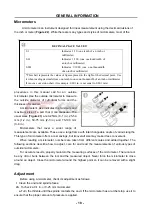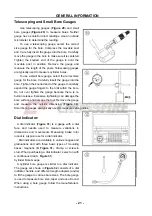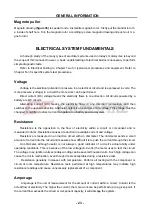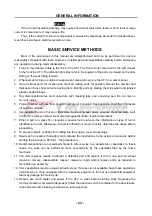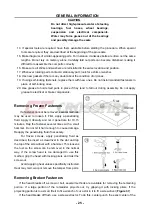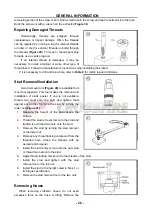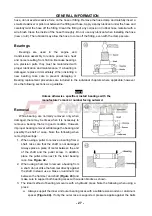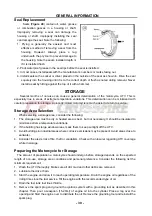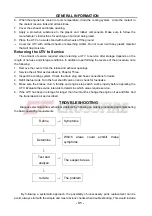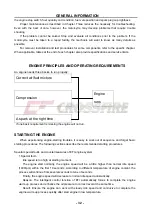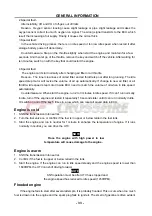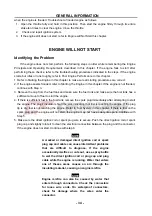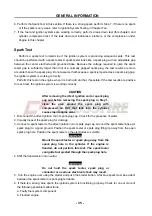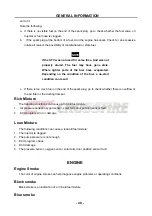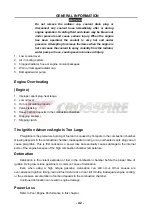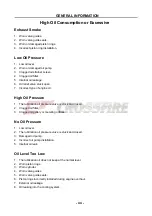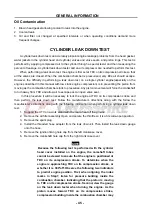
GENERAL INFORMATION
- 31 -
6. When the engine has cooled to room temperature, drain the cooling system drain the coolant in
the coolant reserve tank and all tank lines.
7. Cover the exhaust and intake opening.
8. Apply a protective substance to the plastic and rubber components. Make sure to follow the
manufacturer’s instructions for each type of product being used.
9. Place the UTV on a work stand with both wheels off the ground.
10.
Cover the UTV with old bed sheets or something similar. Do not cover it with any plastic material
that will trap moisture.
Returning the UTV to Service
The amount of service required when returning a UTV to service after storage depends on the
length of non-use and storage conditions. In addition to performing the reverse of the procedure, note
the following:
1. Remove the covers from the intake and exhaust openings.
2. Service the air filter as described in Chapter Three.
3. Inspect the cooling system. Check the drain plug and hose connections for leaks.
4. Refill the fuel tank. Turn the fuel shutoff valve on and check for fuel leaks.
5. Make sure the brakes, clutch, throttle and engine stop switch work properly before operating the
UTV. Evaluate the service intervals to determine which areas require service.
6. If the UTV has been in storage for longer than four months, change the engine oil as and filter, and
the transmission oil as described
TROVBLESHOOTING
Diagnose electrical and mechanical problems by following an orderly procedure and remembering
the basic operating requirements
Define
→
Symptoms
↓
Determine
→
Which areas could exhibit these
symptoms
↓
Test and
analyze
→
The suspect areas
↓
Is date
→
The problem
By following a systematic approach, the possibility of unnecessary parts replacement can be
avoid, always start with the simple and most obvious checks when troubleshooting, This would include


